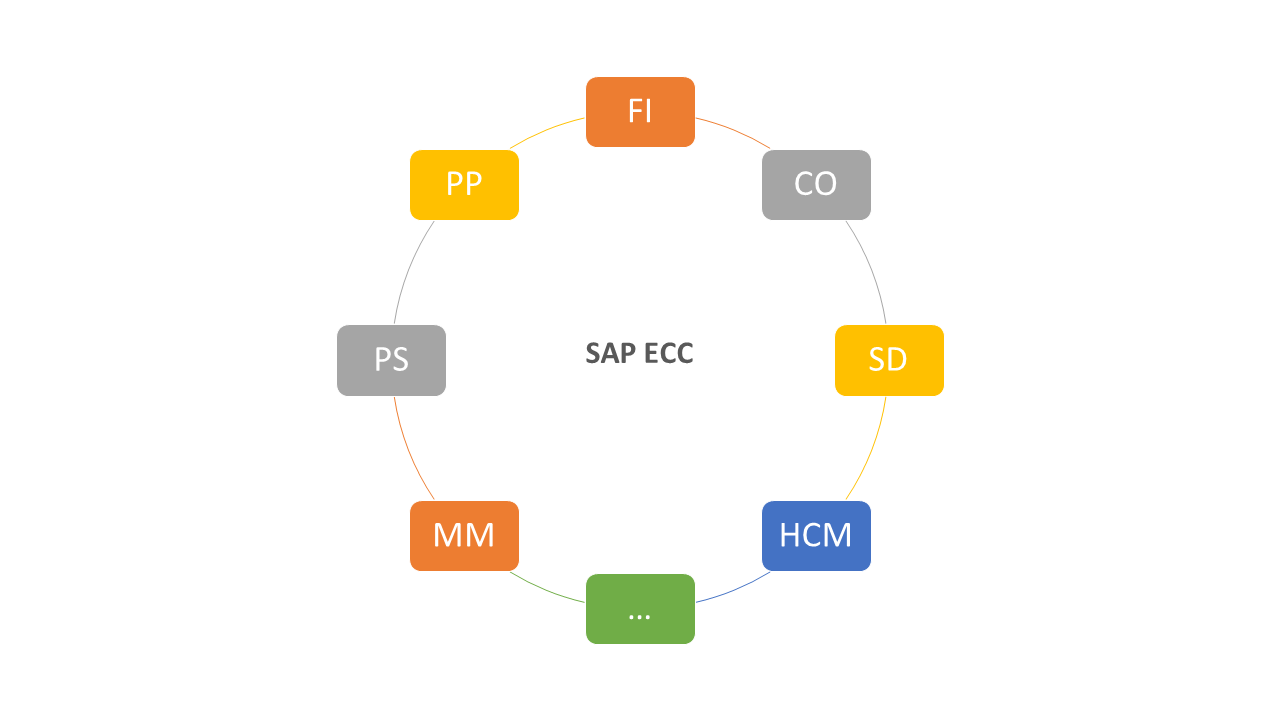SAP ECC Modules provide multiple transactions that allow organizations to manage key business functionalities focused on their specific needs.
These modules are also delivered based on the industry, so the functionality is also adapted for public sector, oil and gas, transportation, etc.
There are many modules available within ECC, among the most popular ones we can share the following:
- Financial Accounting (FI): it is a functional module that manages most of the common financial reports handled by an organization, both internally and externally. It allows managing multiple companies with their own chart of accounts, currencies and languages for a full company-wide control of the financials.
Some of the sub-components within FI are:
- General Ledger (FI-GL): managing the accounts and accounting functions with all the transactions from the different operational areas of a company is one of the most important tasks. The GL module takes care of the heavy lifting while ensuring the data is accurate and complete.
- Account Receivables and Account Payables (FI-AP and FI-AR): these are two very important components for every organization. They manage all the transactions coming from deals with vendors or the ones generated by deals with the customers are a core part of the business.
- Controlling (CO or FI-CO): this is the main repository for costs and revenue associated with every line of business within the organization. The module contains all the transactions associated with the cost centers, including, among others, the following sub-component:
- Profitability Analysis (CO-PA): this is a strategic tool that allows organizations to evaluate, as its name says, the profitability of the different lines of businesses or products offered to our customers worldwide.
- Human Capital Management (HCM): this modules deals with functionality targeting human resources, allowing the business to deal with Time Management, Recruitment, Personnel Cost, Travel Management among other components such as E-learning.
- Sales and Distribution (SD): within this module, users can see everything from the moment an order is placed until it is delivered, with information such as Sales Orders, pricing, packing, shipping, etc.
This module also covers activities such as pre-sales tasks, schedules and billing to customers.
- Material Management (MM): This module manages inventories and procurement functions with the ability to manage master of materials and vendors, material requirement planning, among others.
This module also facilitates tracking of purchases, goods received, storage.
ECC Modules can communicate with each other allowing the organization to have full control over all the different operations and being able to obtain vital reports out of them.
